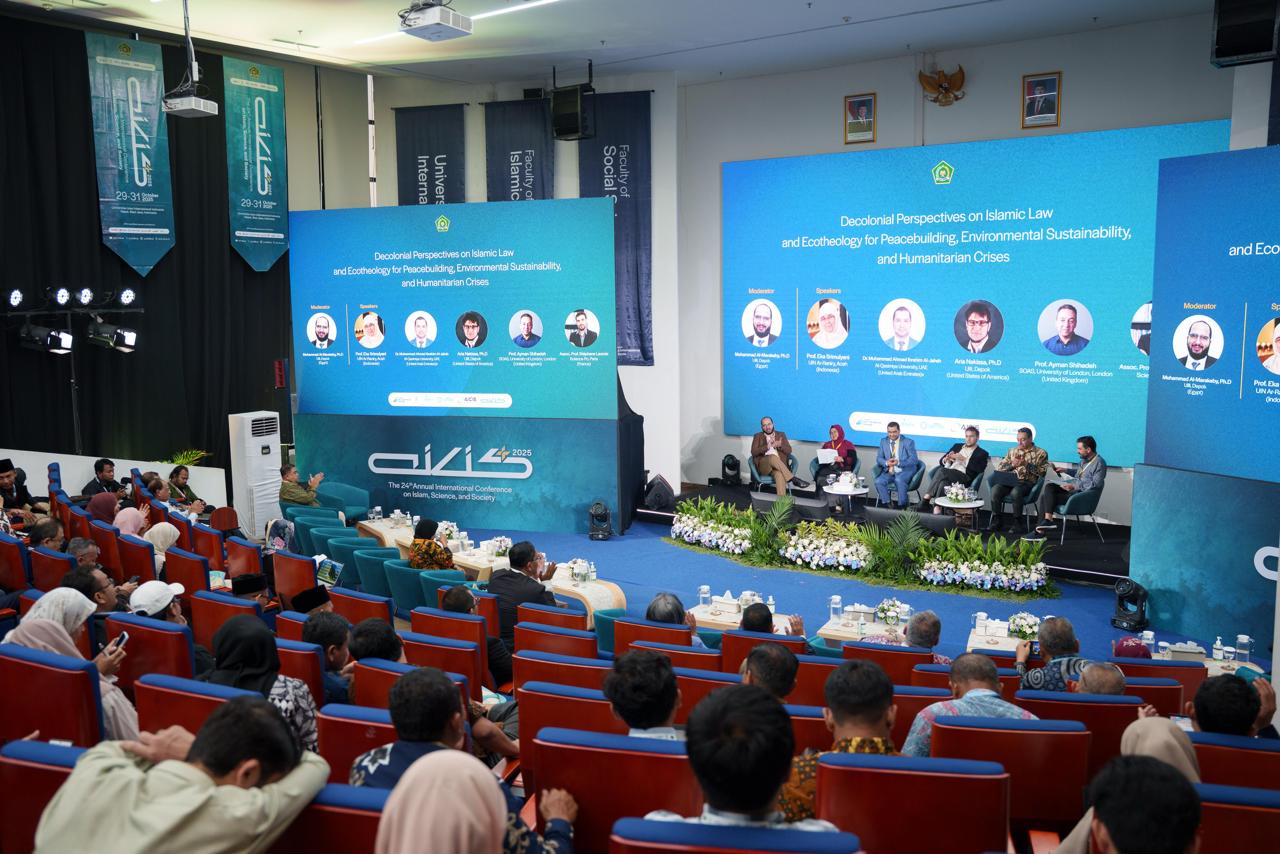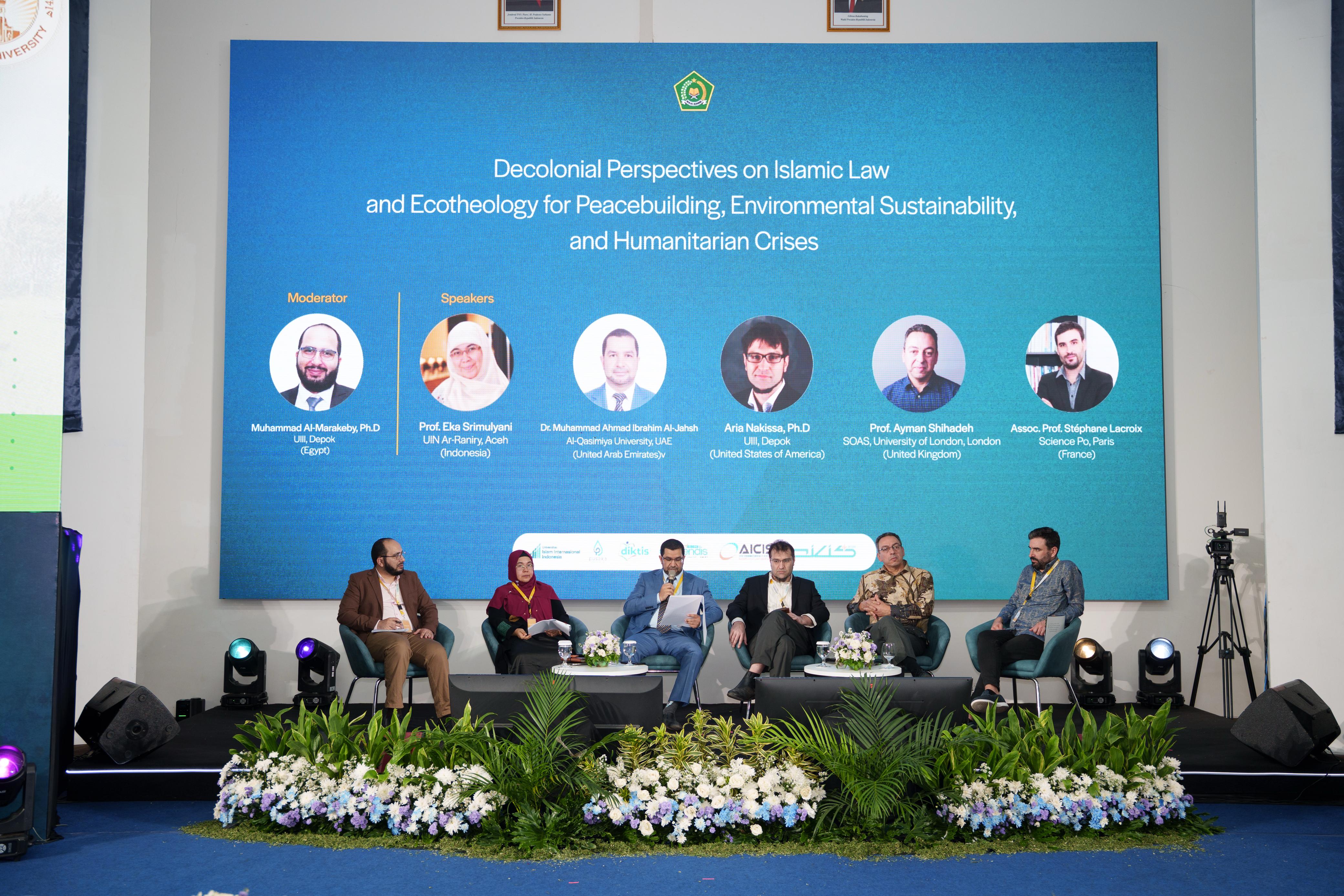More From News
UIII Builds a Bridge to Costa Rica
February 26, 2026
November 3, 2025
Contributor: Hassan Barrie | Photo: Achmad Jatnika

The afternoon of the first day of AICIS+ saw one of the most thought-provoking panels of the conference, “Decolonial Perspectives on Islamic Law and Ecotheology for Peacebuilding, Environmental Sustainability, and Humanitarian Crises.”
Speakers came from Aceh, London, Paris, UAE and they portrayed voices that converged on the idea that environmental protection, gender justice, and faith are not separate paths rather they are one shared journey.
Taking the lead, Prof. Eka Srimulyani from UIN Ar-Raniry, Aceh, spoke about the intersection between feminism and the environment. She introduced the audience to the concept of ecofeminism which sees as the idea that women’s closeness to nature makes them both its protectors and its most vulnerable victims.
Women are more or less much more concerned about their environment and tend to work hard to protecting it. Just as they are the protectors, women are also often the most vulnerable to environmental degradations and tend to bear more of the burden of environmental damage.
With this, Prof. Eka reminded everyone of the institutional, cultural, and spiritual barriers women face in leading environmental movements, yet, in many communities, they remain the guardians of the forest and the silent defenders of sustainability.
 Following her lecture, from the United Arab Emirates, Dr. Muhammad Ahmad Ibrahim Al-Jahsh of Al Qasimiya University stirred the room with a haunting question: “When the future generations read stories about us, what will they read?” He used this to drive home the need for everyone to take up responsibility to protect the environment.
Following her lecture, from the United Arab Emirates, Dr. Muhammad Ahmad Ibrahim Al-Jahsh of Al Qasimiya University stirred the room with a haunting question: “When the future generations read stories about us, what will they read?” He used this to drive home the need for everyone to take up responsibility to protect the environment.
Dr. Al-Jahsh spoke around the fact that the earth is not ours to exploit as it is being borrowed from the future generations. He also reflected on the IPCC’s warnings of irreversible climate damage, where he talked on tipping elements and tying it to the Qur’anic notion of mercy (Rahman) and the Prophet’s teachings that: “Even if the Day of Judgment is to come tomorrow, and one of you holds a seed in his hand, let him plant it.”
“When we destroy the environment,” he said solemnly, “we are not helping ourselves we are stealing from our children.”
Dr. Al-Jahsh urged the creation of environmental fatwas where religious leaders should use their knowledge and platforms to advocate for the environment, the inclusion of sustainability in university curricula as a key strategy where every student should be aware of the causes of environmental destruction and its effects on our lives and the ecosystem, and financial frameworks that reward ecological responsibility where countries and corporations are urged to reduced or abolished activities that lead to environmental destruction.
Dr. Aria Nakissa of UIII, Depok, then added a powerful philosophical layer. He challenged Muslims to think wisely when it comes to sharia and have a rethought on the western framing of Sharia as one that is incompatible with modernity. He narrated “If you want to understand Sharia,” he began, “you must stop thinking as ignorant people do.”
Dr. Nakissa challenged the audience to see that Islamic law was never meant to resist change, but to guide it. “When new technologies emerge,” he said, “our first response should not be fear, but understanding.” He urged Muslims to embrace technology and do not see it as contrary to Islamic doctrines.
From the UK’s SOAS University of London, Prof. Ayman Shihadeh explored the idea of tolerance that in a world where certainty is often unattainable, probable belief and humility can bridge divides. He added that when certainty become impossible to attain, probability can serve as a great substitute.
And finally, Assoc. Prof. Stéphane Lacroix of Sciences Po, Paris, drew these threads together, emphasizing that peacebuilding and tolerance are not abstract ideals but necessary foundations for a sustainable future. He emphasized the need for tolerance as a founding block for a lasting peace.
Universitas Islam Internasional Indonesia